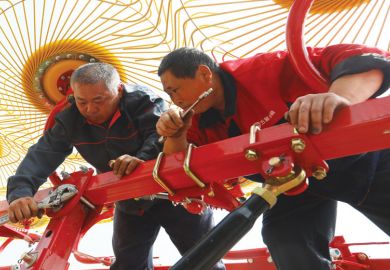This journal is dedicated to all aspects of anaerobic microbiology: the study of anaerobic bacteria and anaerobic eukaryotic microorganisms that can grow only in an oxygen-free environment. It is aimed at clinical, academic and industrial microbiologists with a professional interest in anaerobic microorganisms.
The aim is to address the subject broadly and to cover areas such as physiology/biochemistry, genetics/molecular biology, biotechnology/food microbiology, pathogenesis/clinical microbiology, environmental microbiology, ecology, metabolism/chemistry and taxonomy/systematics.
Each division has its own associate editor, from the United States, Canada or western Europe. The extensive editorial board is truly international and represents all areas likely to be covered, both geographically and in expertise.
Coverage of the field is broad, with papers in most subject areas. Out of the 44 papers published in six issues of the first year, there were eight review articles, 13 papers on clinical/medical topics, ten on physiology/biochemistry, seven on ecology and just one on biotechnology/food microbiology.
Anaerobe was accepted by Current Contents and Chemical Abstracts during its first year of publication. The scientific standards of the papers are variable, but it takes a while for a new journal to receive enough submissions to become more selective. The review articles from acknowledged experts are extremely useful.
Microbiology is a subject well-served (perhaps many would say excessively so) by journals. There are ample destinations for papers on anaerobic microbiology in many other journals of a general or specialised nature, but this is the only journal devoted exclusively to anaerobes. I suppose that this is both a strength and a weakness.
Researchers requiring a comprehensive view of this subject will be able to look specifically here. However, anyone expecting a wider readership for their papers would probably publish elsewhere - in a journal dedicated for example to clinical aspects of microbiology, or to biotechnology. I would question whether there is a perceived need for a journal with the anaerobic microorganism as the common denominator; or is the primary field of study a more important consideration?
My view is that the latter is certainly educationally more useful. I worry that the journal will become a repository for the second rank of papers that would not merit publication in the more widely read (more appropriate) journals. This criticism is not unique to Anaerobe; similar comments could be levelled at other journals that cover such a diverse, but relatively minority-interest subjects.
This journal was launched in an unusual way. Potential subscribers were sent free copies for the first year, with the encouragement to subscribe at the reduced personal rate. I myself received three copies of each of the first year's issues. A few societies around the world are dedicated to anaerobic microbiology and these were also targeted and offered a package deal of membership fee plus subscription to the journal at an attractive rate (but much more expensive than the membership fee alone). To date I am unsure if any of these societies have allied themselves with Anaerobe.
Is there a place for such a journal during a period of information overload and diminishing library budgets? My own view is that this journal, although covering a broad field, is unlikely to appeal to personal subscribers as they will not have either a general or a research interest in the full breadth of the subject. How many of us are privileged with the time to delve into all aspects of anaerobe biology at the research level? Of course, many may wish to be able to consult specific papers from this journal in a library. I will await with interest to see if this journal succeeds or fails.
Presentation is attractive, with good-quality artwork and reproduction of photomicrographs.
Ian R. Poxton is reader in medical microbiology, University of Edinburgh Medical School.
Anaerobe
Editor - Larry Barton
ISBN - ISSN 1075 9964
Publisher - Academic Press
Price - £180.00 (institutions), £90.00 (individuals)
Pages - 12 a year
Register to continue
Why register?
- Registration is free and only takes a moment
- Once registered, you can read 3 articles a month
- Sign up for our newsletter
Subscribe
Or subscribe for unlimited access to:
- Unlimited access to news, views, insights & reviews
- Digital editions
- Digital access to THE’s university and college rankings analysis
Already registered or a current subscriber?



